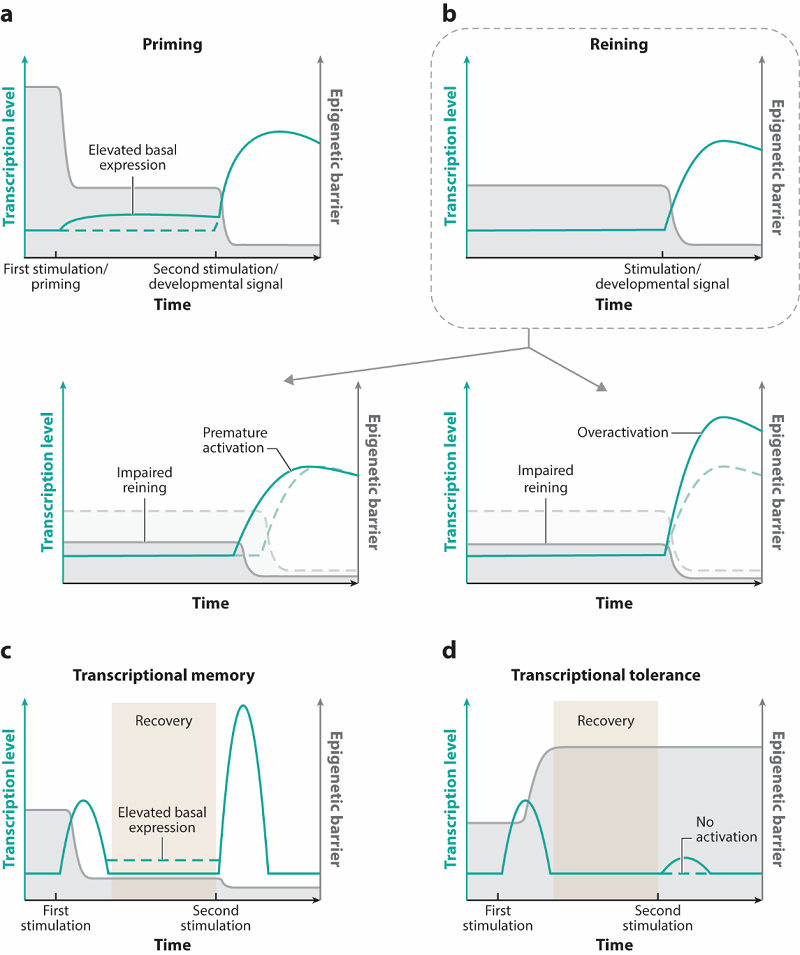
Newsroom
A recent review by Prof. ZHU Bing and Associate Professor XIONG Jun from the Institute of Biophysics of the Chinese Academy of Sciences reveals how epigenetic regulation not only maintains gene transcriptional states but also "presets" gene expression states well before it is required.
Published on June 16 in Annual Review of Genetics, the article systematically elucidates how cells prepare for future gene activation through sophisticated epigenetic mechanisms.
Epigenetic regulation-through DNA methylation, histone modifications, chromatin remodeling, and incorporation of histone variants-has long been recognized for maintaining transcriptional states. This review comprehensively summarizes four core epigenetic preparation mechanisms:
Priming: Cells proactively lower the "activation threshold" of specific genes, placing them in a poised state, ready to be rapidly and efficiently activated upon receiving developmental or environmental cues.
Reining: In contrast to priming, this "braking" mechanism maintains a relatively high activation barrier to keep genes in a restrained state. It prevents premature or excessive expression, ensuring precision and moderation in gene activation.
Transcriptional Memory: Cells can "remember" past gene activation events, enabling genes with such memory to respond faster and more robustly when exposed to similar stimuli again. This mechanism is critical for cellular adaptation to recurring environmental changes.
Transcriptional Tolerance: In some cases, an initial strong signal can raise the gene's activation threshold, resulting in a weakened or silenced response to subsequent stimuli. This negative feedback mechanism is essential for preventing tissue damage from excessive responses, such as hyperinflammation.
The review further delves into the molecular underpinnings of these preparatory processes and proposes a comprehensive model of epigenetic preparedness. It offers in-depth discussion on key issues, including gene selectivity, the stable inheritance of "prepared states" across cell divisions, and the dynamic strategies cells employ to modulate epigenetic barriers.
These insights open new avenues for future research and potential therapeutic interventions in developmental disorders, autoimmune diseases, and cancer.

Major processes of epigenetic preparation for future gene induction (Image by ZHU Bing's group)
